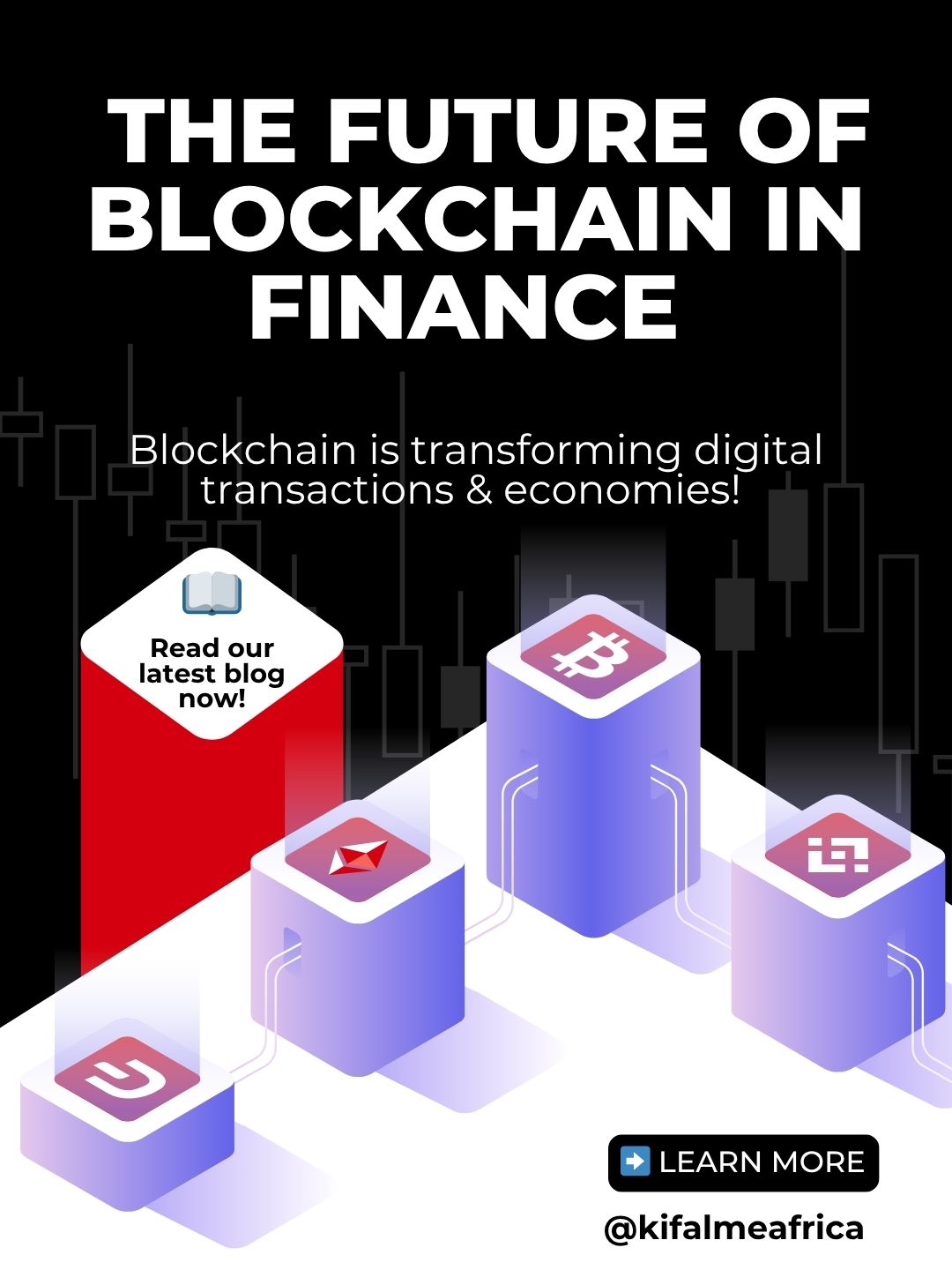
Blockchain technology is reshaping the financial industry, offering increased efficiency, transparency, and security. As we move forward, digital transactions and decentralized economies will continue to evolve, bringing new opportunities and challenges. Here’s what you need to know about the future of blockchain in finance.
Key Trends Shaping Blockchain in Finance
- Increased Adoption Across Industries
Blockchain is no longer confined to cryptocurrencies like Bitcoin and Ethereum. It is being widely adopted in sectors such as banking, healthcare, supply chain management, and real estate. According to market analysts, the global blockchain market is expected to reach $1 trillion by 2032 (Kraken). - The Rise of Decentralized Finance (DeFi)
Decentralized Finance (DeFi) is eliminating the need for intermediaries, providing a more open and accessible financial ecosystem. The DeFi market is projected to grow to $231 billion by 2030, led by platforms like Aave and Uniswap that enable peer-to-peer lending, trading, and borrowing (101 Blockchains). - Tokenization of Real-World Assets
Blockchain is enabling the tokenization of real-world assets, such as real estate, commodities, and fine art, allowing fractional ownership and increased liquidity. This innovation is set to democratize investment opportunities, making them accessible to a broader audience (WHU). - Blockchain-as-a-Service (BaaS)
Companies are turning to Blockchain-as-a-Service (BaaS) to implement secure and efficient blockchain solutions without significant infrastructure investment. The BaaS market is expected to reach $25 billion by 2027, with major tech firms like Microsoft and IBM leading the charge (Innowise). - Central Bank Digital Currencies (CBDCs)
Governments worldwide are exploring the development of CBDCs, which will integrate blockchain into mainstream finance. Estimates suggest that up to 15 central banks may introduce digital currencies by 2030, enhancing the efficiency of monetary systems (Openware). - The Role of Regulation
Regulatory clarity will be crucial in fostering trust and driving adoption. Countries like the U.S., the U.K., and Singapore are refining their legal frameworks to accommodate blockchain-based financial services, which could lead to increased mainstream engagement (TechTarget).
Implications for Financial Services
- Enhanced Efficiency
Blockchain can significantly reduce transaction times and costs by automating processes and eliminating third-party intermediaries. Smart contracts ensure seamless execution of transactions, leading to faster and cheaper financial services. - Increased Transparency and Security
The decentralized nature of blockchain enhances security and transparency in transactions. Every transaction is recorded on a distributed ledger, reducing the risk of fraud and ensuring accountability in financial operations. - Emergence of Innovative Financial Products
Blockchain technology is paving the way for new financial instruments, such as digital securities, tokenized derivatives, and decentralized lending solutions. These innovations provide greater flexibility, customization, and liquidity for investors and businesses alike (Consensys).
Recent Developments in Blockchain and Cryptocurrency in South Africa
- Strengthening of Regulatory Frameworks
South Africa is introducing new exchange control regulations aimed at integrating digital assets into the national financial system. The Financial Sector Conduct Authority (FSCA) has licensed 248 cryptocurrency exchanges, making South Africa the first African nation to do so. This regulatory clarity is expected to enhance consumer protection and attract global investment (Webber Wentzel). - Central Bank Digital Currency (CBDC) Initiatives
The South African Reserve Bank (SARB) is expanding its CBDC pilot, Project Khokha, aiming to improve cross-border payments and financial inclusion. This initiative aligns with a broader trend where central banks explore digital currencies as part of their monetary policy frameworks (Crypto for Innovation). - Increased Institutional Adoption
Following the approval of Bitcoin and Ethereum spot ETFs in 2024, institutional interest in cryptocurrencies has surged. Traditional investors are increasingly seeing crypto as a viable addition to their portfolios rather than merely speculative assets (Bizcommunity). - Convergence of AI and Blockchain
AI integration with blockchain is gaining momentum, improving smart contract automation and network security. The combination of AI-driven data analysis and blockchain technology is driving further innovation in decentralized finance (DeFi) (VentureBurn). - Upcoming Regulations
The SARB has confirmed a phased approach to regulating crypto assets over the next 12 to 18 months. This includes classifying crypto assets as financial products, providing a more structured environment for crypto service providers (Notabene).
Frequently Asked Questions Regarding Blockchain and Its Implications in Finance
- How does blockchain improve financial security?
Blockchain enhances financial security by providing a decentralized and transparent ledger, reducing the risk of fraud and unauthorized alterations. More details can be found in this article: Blockchain & Cybersecurity in Banking – Infosys BPM. - What is the significance of CBDCs in finance?
Central Bank Digital Currencies (CBDCs) enhance transaction efficiency, reduce costs, and improve monetary policy implementation by central banks. You can read more about this in the following resource: The benefits of blockchain in financial services – Moody’s. - How does DeFi differ from traditional finance?
Decentralized Finance (DeFi) eliminates intermediaries, allowing direct peer-to-peer transactions through smart contracts, which increases accessibility and reduces costs. More information can be found here: Blockchain in Finance & Fintech: The Future of Financial Services. - Is blockchain adoption limited to cryptocurrencies?
No, blockchain technology is being implemented across various industries, including supply chain management, healthcare, and real estate. For further insights, check out this article: What are the Benefits of Blockchain? – IBM. - What challenges does blockchain face in financial services?
Significant challenges for blockchain adoption in financial services include scalability, regulatory uncertainty, and high energy consumption. More details on these challenges can be found in this research paper: Blockchain’s Impact on Financial Security and Efficiency Beyond Cryptocurrency Uses.
Conclusion: Embracing the Future of Finance
The future of blockchain in finance looks promising, with continuous advancements shaping the digital economy. As adoption grows, financial institutions, businesses, and governments must navigate the evolving landscape carefully, balancing innovation with regulation. Whether through DeFi, tokenization, or CBDCs, blockchain is set to redefine financial systems, making them more inclusive, efficient, and secure.
To stay updated on the latest blockchain trends and their impact on finance, explore the following resources:
- Kraken’s Blockchain Insights
- 101 Blockchains’ Future Predictions
- Innowise’s Blockchain Banking Guide
- Consensys’ Finance Use Cases
- Shape
What are your thoughts on blockchain’s impact on finance? Share your views in the comments below!


